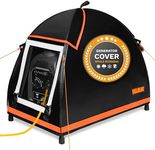Buying Guide for the Best 50 Amp Generator
Choosing the right 50-amp generator can be a crucial decision, especially if you need a reliable power source for your home, RV, or job site. The key to making the best choice is understanding the specifications and how they align with your specific needs. Here are the key specs you should consider and how to navigate them to find the best fit for you.Power OutputPower output, measured in watts, indicates how much electricity the generator can produce. This is important because it determines what and how many devices you can run simultaneously. Generators typically range from 5,000 to 12,000 watts. For basic home backup, 5,000-7,000 watts might suffice, but for running multiple large appliances or tools, you might need 8,000-12,000 watts. Assess your power needs by listing the devices you plan to use and their wattage requirements.
Fuel TypeGenerators can run on various fuels, including gasoline, propane, diesel, and natural gas. The fuel type affects the generator's efficiency, cost of operation, and convenience. Gasoline is widely available but has a shorter shelf life. Propane is cleaner and has a longer shelf life but may require a larger storage space. Diesel is efficient and long-lasting but can be noisier. Natural gas is convenient for home use if you have a gas line but is less portable. Choose based on availability, storage, and your specific use case.
Run TimeRun time refers to how long the generator can operate on a full tank of fuel. This is crucial for planning how often you will need to refuel, especially during extended power outages or long workdays. Generators with larger fuel tanks or more efficient engines can run longer. For occasional use, a shorter run time might be acceptable, but for continuous use, look for generators with at least 8-12 hours of run time at half load.
PortabilityPortability is determined by the generator's size, weight, and design features like wheels and handles. This is important if you need to move the generator frequently, such as for camping, RV use, or job sites. Smaller, lighter generators are easier to transport but may offer less power. Larger units provide more power but can be cumbersome. Consider how often and where you will need to move the generator to find the right balance.
Noise LevelNoise level, measured in decibels (dB), indicates how loud the generator will be during operation. This is important for comfort and compliance with noise regulations, especially in residential areas or campsites. Generators typically range from 50 dB (quiet) to over 80 dB (loud). For home or RV use, a quieter generator (50-65 dB) is preferable. For job sites, noise may be less of a concern, but always consider the environment where it will be used.
Starting MechanismGenerators can have different starting mechanisms, including manual recoil start, electric start, and remote start. This affects the ease of use. Manual recoil start is reliable but requires physical effort. Electric start is more convenient, especially for those who may have difficulty with manual starts. Remote start offers the highest convenience, allowing you to start the generator from a distance. Choose based on your preference for convenience and physical capability.
Outlets and ConnectivityThe number and types of outlets determine what devices you can connect to the generator. Look for a generator with a variety of outlets, including 120V and 240V options, USB ports, and RV-ready outlets if needed. This is important for ensuring compatibility with your devices and appliances. Assess your needs by listing the devices you plan to power and their plug types to ensure the generator has the appropriate outlets.
Safety FeaturesSafety features like automatic shutoff, overload protection, and low-oil shutoff are crucial for preventing damage to the generator and connected devices, as well as for user safety. Automatic shutoff turns the generator off if it overheats or runs low on oil. Overload protection prevents damage from drawing too much power. Low-oil shutoff protects the engine from damage. Prioritize generators with these features to ensure safe and reliable operation.
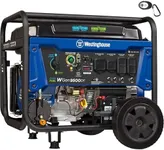
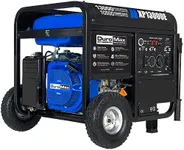
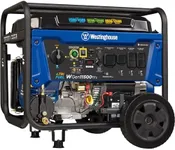
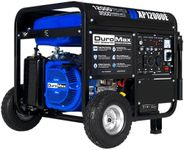


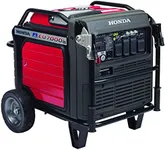
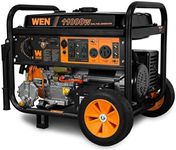


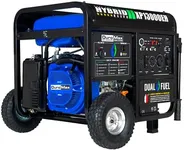
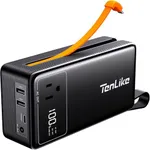
![[Upgraded Version] ALLPOWERS S2000 Portable Power Station 2000W (Peak 4000W) MPPT Solar Generator 1500Wh Backup Battery with 4 AC Outlets for Outdoor Camping RV Emergency Off-Grid](https://images-proxy.bestreviews.guide/YtTaRg6uNv-LaNq9_7sPyzjq62s=/0x150/https://m.media-amazon.com/images/I/31g7wSEKaOL._AC_CX679_.jpg)


